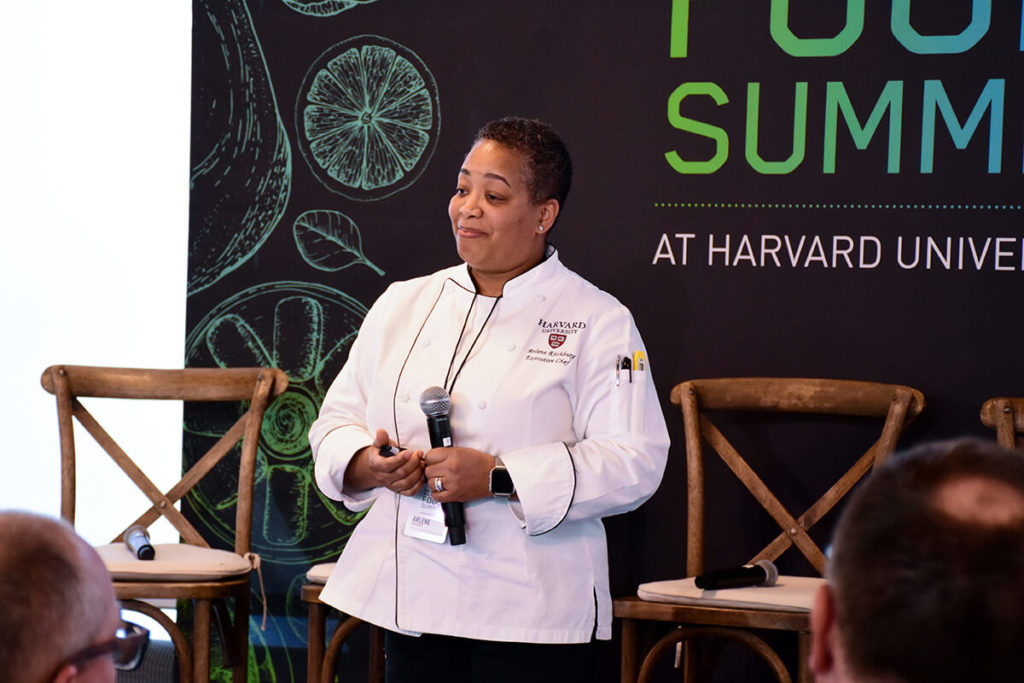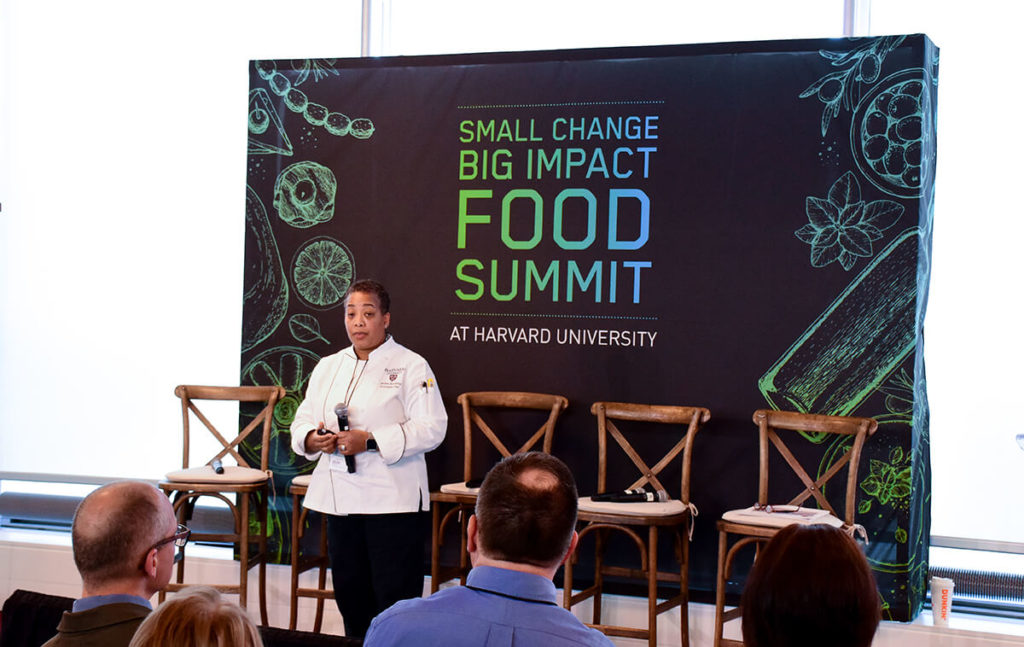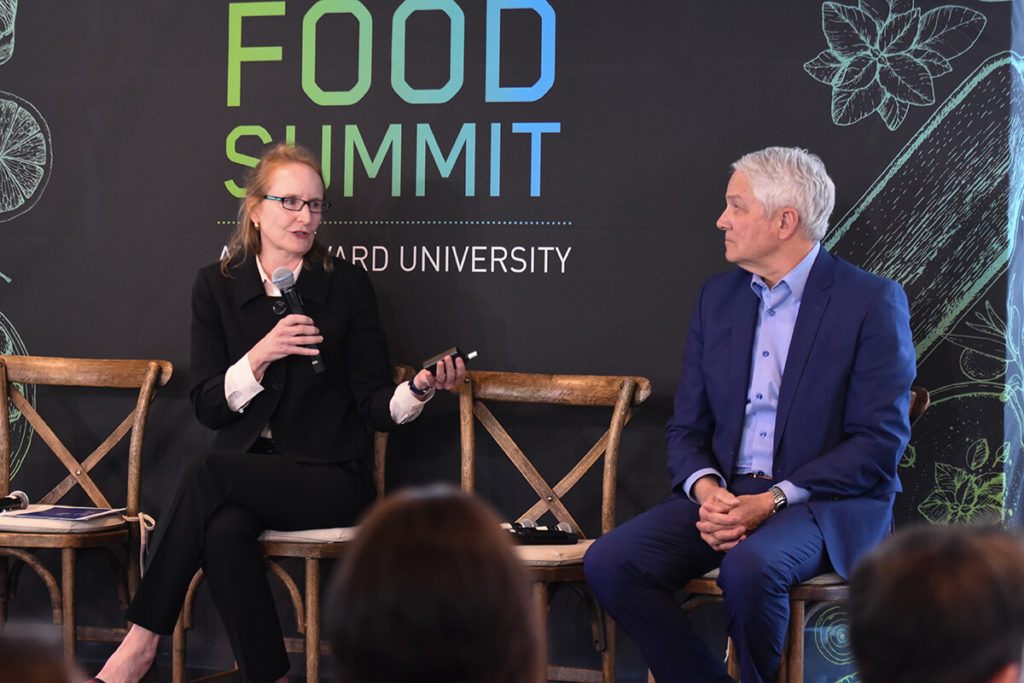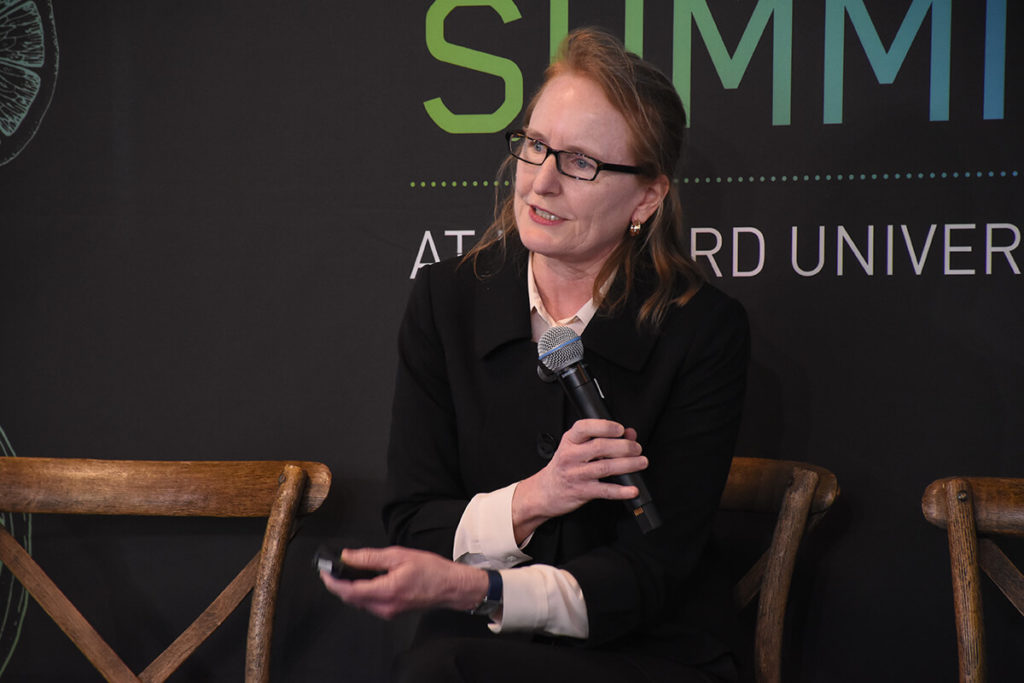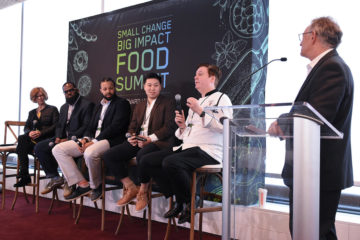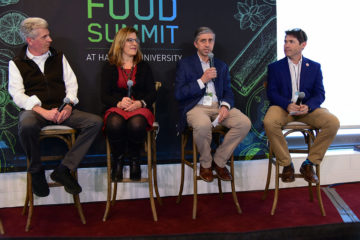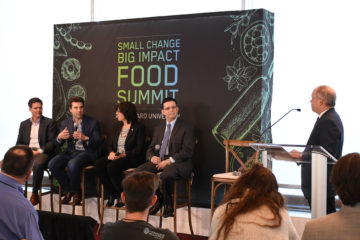Small Change Big Impact Case Studies
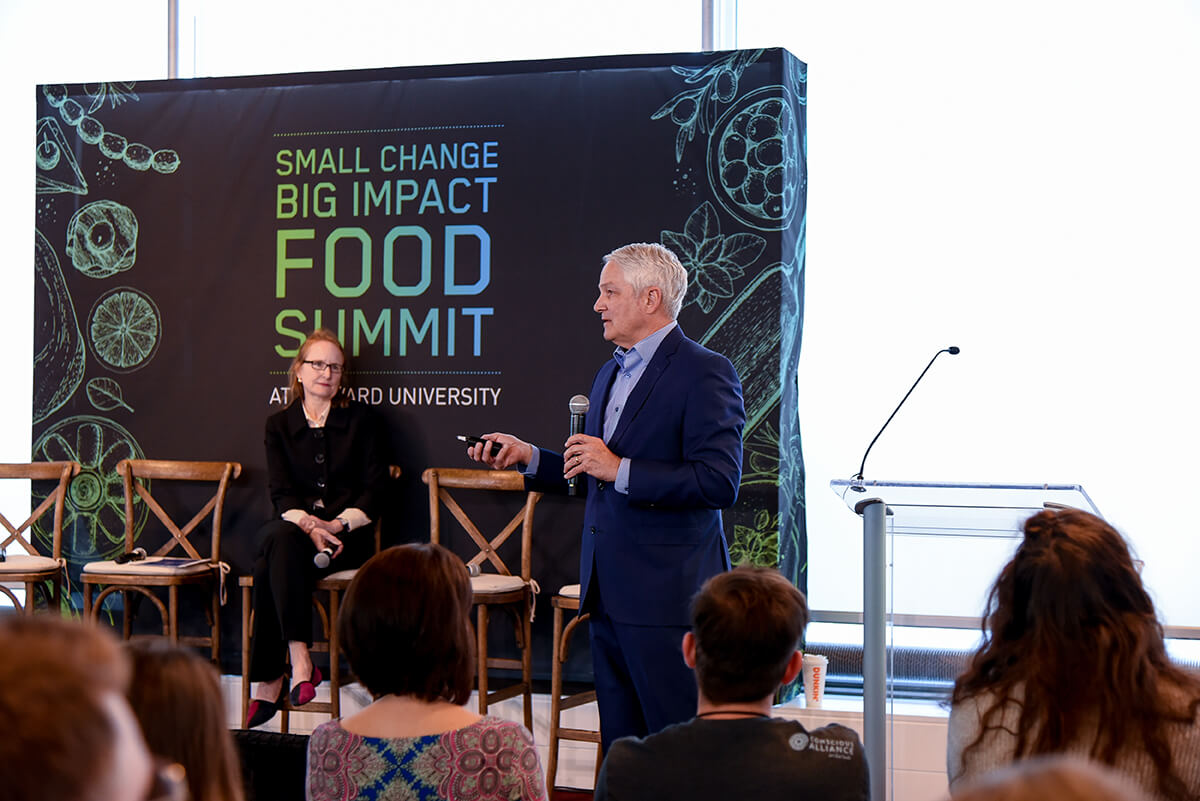
Presented By
- Joe Swedberg, Chairman, Farm Foundation
- Kathy Talkington, Project Director Antibiotic Resistance Project – Pew Charitable Trusts
- Arlene Richburg, Executive Chef, Sebastian’s Cafe, Harvard School of Public Health
Summary
In two case study presentations, guests had the chance to learn about the newest and greatest developments in the industry. Introducing the first case study, Attention Span Media’s Garrett Law who is the firm’s Chief Strategy Office and co-founder, pointed out that the hope is that next year’s case studies will spring out of conversations from the 2019 summit – which definitely sounds like something to look forward to.
For the Antibiotics in Agriculture from idea to impact case study, input came from industry leaders to help shape public policy around antibiotics. Joe Swedberg explained why the Farm Foundation got involved in this public-private partnership with the FDA and USDA by saying that:
Agriculture is committed to stewardship. You wouldn’t stay in business as a company or as a family farm if you don’t care about the sustainability of the food system.
Kathy Talkington of the Pew Charitable Trusts is the Project Director for the Antibiotic Resistance Project, and she explained their about their efforts as:
We’re trying to figure out how do we preserve the effectiveness of the antibiotics that we already have available both in human medicine and in animal agriculture. At the same time how do we jump start the development of new therapies so that we have them into the future?
Executive Chef Arlene Richberg of Residential Dining at Harvard University presented on Menu and service innovation, from idea to impact.
Working with the research from the School of Public Health, the chef and her staff use mindful cooking choices daily, with the goal of educating the Harvard students about making healthier eating choices and hopefully making the world a better place. That means the use of fresh and local produce, less beef (and more mushrooms), local seafood, lower sodium and by packaging meals for in-need communities, so that there is less wasted food. Chef Richberg uses a multidisciplinary approach, and said:
We make sure we follow through on the research from Dr. Willett of the School of Public Health and create menus that are healthier.
